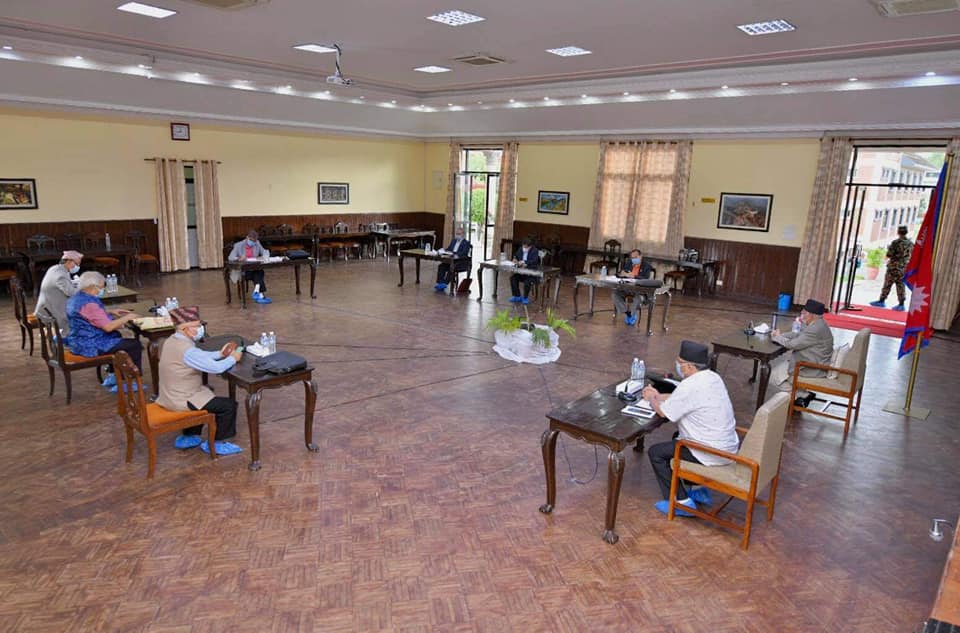
Zhu Bo / Gu Hongyu
The mid-19th century marked the advent of the Industrial Revolution in the western world. Since then, the history of human civilisation has been invariably written in favour of the West. For example, the world today witnesses America’s dominance in cultural phenomena and international power discourse. The western cultural values featuring ‘freedom and democracy’ can be seen in Hollywood movies. Consumerism that is prevalent in the present world is an idea developed after the Civil War in the US. It attempts to destock the overcapacity of previous industrial revolutions. The theory that consumption stimulates economic growth has been put forward by economist J. M. Keynes.
As far as international relations are concerned, theories guiding us to analyse current global affairs are also derived from the western world. These theories are based on the assumption that humanity entails the concept of ‘natural state’ and ‘the law of the jungle,’ portraying human nature basically ‘evil’. Under such conception, it’s no surprise to see the relations among western countries are established upon interests and plots. Therefore, when China proposed the Belt and Road Initiative (BRI) which has already benefited neighbouring countries, western scholars would regard it as China’s global expansion by adopting the western-style ‘evil’ angle.
Shared benefits
As a matter of fact, it is not the case. In essence, the 5,000 years of traditional Chinese culture with “Confucianism, Buddhism and Taoism” as its core has determined that our strategy per se is to seek mutual benefit and win-win outcome with neighbouring countries and build a community with a shared future for mankind. Be it Chinese Confucian, Taoist or Buddhist culture, what they all have in common is the belief that ‘human nature is good’, which determines that the angle from which China views relations with other countries will never be limited to ‘interests’ only.
That is why China is always attaching great importance to values like ‘stake-interrelated’, ‘win-win cooperation’ and ‘peaceful coexistence’, as key elements for building a peaceful and stable world order.
The Chinese civilisation has been renowned for its etiquette since ancient times. The term ‘etiquette’ is the core of the splendid Chinese traditional culture. Chinese people define it as the ultimate of all things. Naturally, the philosophy that ‘good neighbourliness is the treasure of a country’ has always been the basic spirit China adheres to in dealing with relations with other countries. Such spirit of friendly exchanges has given birth to ideologies and culture for countries to achieve peaceful coexistence and establish solid relations.
The traditional Chinese culture also features the pursuit of a reasonable and just world order, with a society of great harmony as its supreme end, which is conducive to galvanising the diligent human beings into exploring a development path of mutual benefit and win-win cooepration, eliminating inequality between countries, bridging the gap between the north and the south and alleviating poverty across the world. Finally, a world of felicific idea, cultural co-prosperity and harmonious coexistence will be fully achieved.
Hence, it’s not difficult to understand that the BRI is to promote common prosperity and world peace rather than play a zero-sum game. Over the past 5 years, more than 100 countries and international organisations worldwide have actively participated in the BRI. More than 80 cooperation agreements have been signed with China and a wide spectrum of major cooperative projects have been underway. A tapestry of ways of cooperation and the related projects are aimed at promoting mutual benefit and common development.
The BRI, taking connectivity as its breakthrough, has continuously been extended to countries along the route through the infrastructure construction of railways, ports and hydropower stations, providing significant development opportunities for those countries. It has played an important role in improving employment, infrastructure conditions and economic efficiency as well in its member states.
The early friendly exchanges between China and Nepal can be traced back to thousands of years ago. Faxian, an eminent monk of the Jin Dynasty, and Xuanzang of the Tang Dynasty, both had visited Lumbini, the birthplace of Buddha located in the south of Nepal. During the Tang Dynasty, the ancient Nepal and the ancient Tibet allied through the marriage of the Princess Bhrikuti and the King Songtsen Gampo. During the Yuan Dynasty, Nepal’s famous architect Arniko came to China to supervise the construction of Baita Temple in Beijing.
China and Nepal have common grounds in values, namely Buddhist culture, which enables us to forge better mutual understanding. Since the introduction of Buddhism into China from Nepal, the Chinese society has accumulated a profound history of Buddhist belief. The ideas ‘all living creatures are born equal’ and ‘karma’ pioneered by Buddhism have long been rooted in the minds of the Chinese people for thousands of years.
Unlike the modern western philosophy of Darwinism which initiates ‘natural selection’ and ‘white supremacy’, Buddhism, guided by mercy, treats all lives equally and kindly. Such spirit based on kindness and inclusiveness makes the BRI not jingoism-oriented in nature, but rather mutually beneficial and win-win project. This concept, as one of China’s diplomatic principles, also distinguishes China from the major developed countries in the world.
For the past 500 years, the western-led Industrial Revolution has always been advocating measuring everything with ‘interests’. Churchill, former British Prime Minister once said: “A country does not have everlasting friends, but friends with everlasting interests.” Although western countries have established many international organisations to help developing countries, through careful research it is not hard to discover that those organisations (e.g. World Bank and IMF) usually attach certain harsh auxiliary conditions while offering aids and loans to developing countries. In the long run, the economic growth among developing countries will suffer.
Mutual trust
By contrast, the BRI does not follow suit. It aims to promote complementary advantages, mutual benefit and common development through cooperative projects. Under the framework of BRI, we hope to enhance deeper cooperation and exchanges between China and Nepal in the spheres of politics, economy and culture and build up mutual trust for a more harmonious world and a community with a shared future for mankind.
(Zhu is an assistant researcher and Gu is a lecturer at Kunming University of Science and Technology, China).
